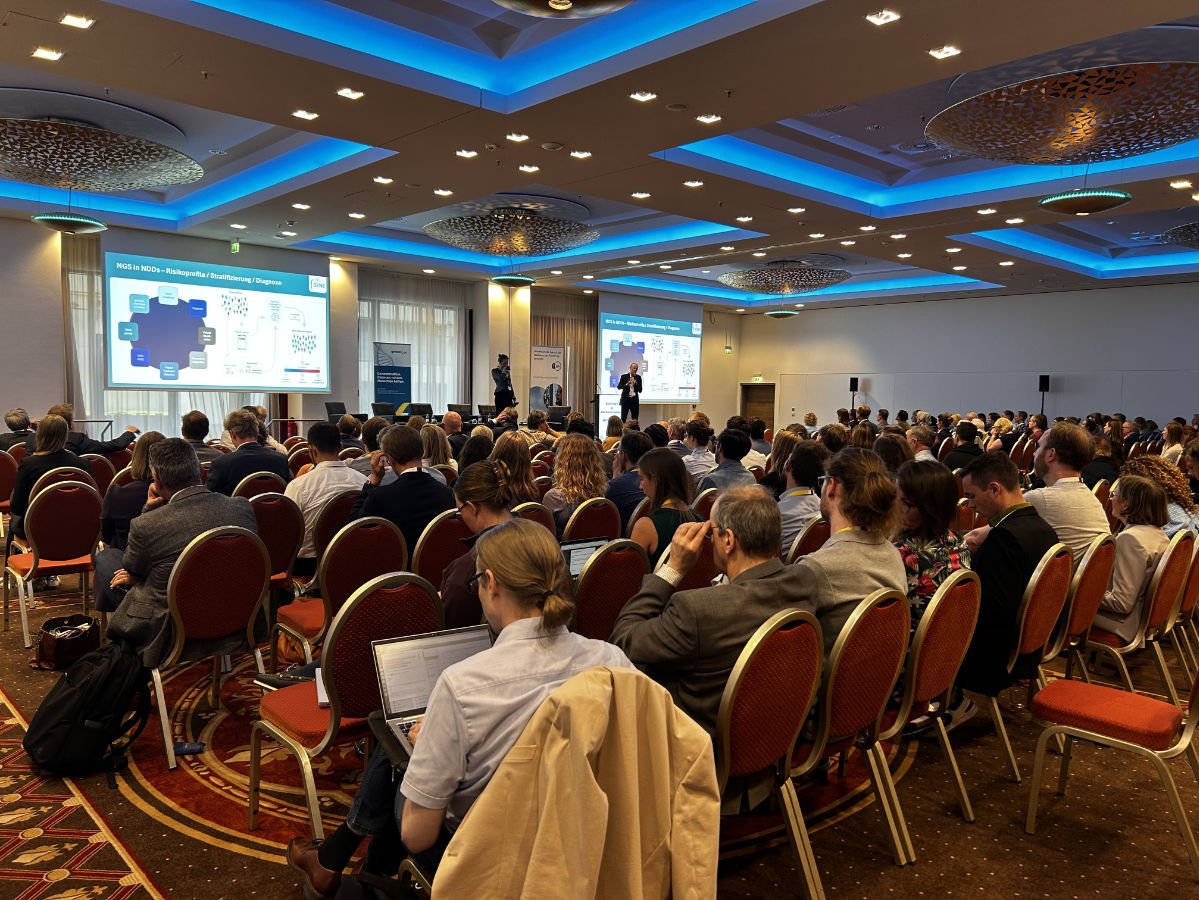genomDE Symposium 2025: Data. Infrastructure. Impact.
- 15 Jul 2025
- Ulrike Träger
“In der Genommedizin stehen wir vor einem Innovationssprung” (“In genomic medicine, we are on the verge of a leap forward”), said Dr. Georg Kippels, Parliamentary State Secretary at the Federal Ministry of Health, opening the 4th genomDE Symposium 2025. His words captured the central theme of the event: Germany is on the brink of a major leap forward in genomic medicine.
The symposium brought together experts from clinical care, research, data infrastructure, policy, industry, and patient advocacy to discuss how this future can be shaped. Across two days of dialogue, it became clear that advancing genomic medicine hinges not only on sequencing technology but also on building trusted, interoperable, and secure data infrastructures and data sets.
The genomDE model project itself was a key focus of the symposium, with multiple sessions dedicated to progress and future directions. Diverse voices from the clinical, infrastructural and regulatory sides shared initial lessons learned since the start and current developments. They further explored the integration of genomic data with other health information (e.g. from the Health Data Lab) to create a more comprehensive picture.
A second central theme was the critical need for trusted data ecosystems that enable responsible, scalable, and FAIR-compliant access to genomic data. Transparent governance and adherence to high standards are essential to protect patient privacy and rights, while enabling researchers and clinicians to ask the important questions for innovation. This vision was underscored by Prof. Dr. Oliver Kohlbacher, who highlighted GHGA’s work in developing a national infrastructure capable of securely managing several hundred thousand genomes for research-consented reuse within the next few years.
Collaboration emerged as a key factor for success, requiring cross-sector partnerships and international alignment. Within the session organized by GHGA, Mark Ibberson shared Switzerland’s experience with BioMedIT, a federated infrastructure model offering trusted data processing and sharing. This offered valuable lessons for the German landscape. Similarly, Alexander Sczyrba presented how the de.NBI/ELIXIR-DE enables scalable bioinformatics research across disciplines. Edwin Cuppen’s presentation on whole genome sequencing-based cancer diagnostics demonstrated how precision medicine is transforming patient care in the Netherlands. Meanwhile, Joachim Schultze and Anna Aschenbrenner explored the use of genome analysis in neurodegenerative diseases. Both emphasised the potential of genomics beyond rare and cancerous conditions and how new areas can implement lessons learned.
Cutting-edge applications, such as AI-driven oncological predictions presented by Moritz Gerstung further showcased the critical need for high-quality, harmonised data resources—something the genomDE infrastructure ecosystem and GHGA aim to provide.
Finally, patient involvement was emphasised as indispensable. Stefanie Stegen from the BRCA-Netzwerk and other patient representatives called for embedding the patient voice throughout research and clinical implementation.
We enjoyed co-hosting this event and want to send a heartfelt thank you to all speakers, our co-organizers - de.NBI, BfArM (The Federal Institute for Drugs and Medical Devices) and TMF e.V. - for their engagement and vision.






